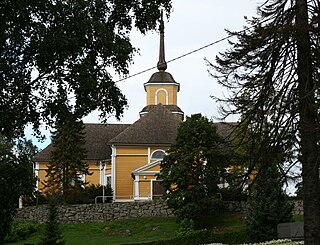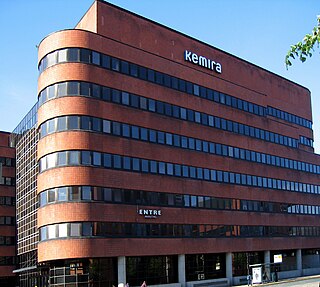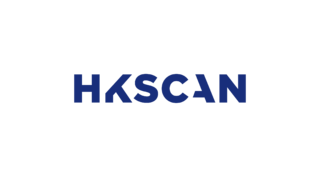
Nokia is a town and municipality in southwestern Finland. It lies on the banks of the Nokianvirta River in the region of Pirkanmaa, about 15 kilometres (9 mi) west of Tampere. The distance to Tampere Airport from Nokia is 16 kilometres (9.9 mi) using road connections when circling Lake Pyhäjärvi. Its neighboring municipalities are Hämeenkyrö, Pirkkala, Sastamala, Tampere, Vesilahti and Ylöjärvi. As of 31 December 2023 it has a population of 35,652 and it is one of the fastest-growing cities in the area; today, Nokia is the 33rd largest municipality of Finland by population and the second largest municipality in Pirkanmaa after Tampere.

Nurmijärvi is the most populated rural municipality of Finland, located 37 kilometres (23 mi) north of the capital Helsinki. The neighboring municipalities of Nurmijärvi are Espoo, Vantaa, Tuusula, Hyvinkää and Vihti, and it is part of the Greater Helsinki. The population of the municipality is 44,773 inhabitants. In recent decades, it has been one of the fastest growing municipalities in the Greater Helsinki and also in whole Finland in terms of population. The close proximity to Helsinki has led to a considerable growth of the major villages such as Klaukkala, Rajamäki and Röykkä. Klaukkala is the biggest built-up area of Nurmijärvi, which nowadays is considered a dormitory town of Helsinki. The Nurmijärvi church village (Kirkonkylä) is the administrative centre of the municipality, although the clear emphasis on population growth is in Klaukkala.

Jyväskylän maalaiskunta, 'The Rural Municipality of Jyväskylä' is a former municipality of Finland. Together with Korpilahti, Jyväskylän maalaiskunta was consolidated with Jyväskylä on 1 January 2009. It was the last municipality to carry the name maalaiskunta.

Outokumpu is a town and municipality of Finland. It is located in the North Karelia region, 48 kilometres (30 mi) west of Joensuu and 92 kilometres (57 mi) east of Kuopio. The municipality has a population of 6,406 and covers an area of 584.05 square kilometres (225.50 sq mi) of which 138.22 km2 (53.37 sq mi) is water. The population density is 14.37 inhabitants per square kilometre (37.2/sq mi). The most important road connection in the locality is Highway 9.

Loimaa is a town and municipality of Finland.
Honkarakenne Oyj is a Finnish company that manufactures log homes. Honka is also a registered trademark of the company.

R-kioski is a chain of convenience stores that is part of the Reitan Convenience division of the Reitan Group. Reitan's Eastern Nordic and Baltic portfolio includes R-kioski in Finland, R-kiosk in Estonia and Lietuvos spauda in Lithuania. There are 560 R-kioski shops across Finland as of 2017. They sell a range of products, such as books, magazines, cigarettes and tobacco, ready meals, snacks, soft drinks and alcoholic drinks such as beer and cider. R-kioski shops also provide services such as the various "Veikkaus" lottery games, prepaid SIM cards and top-up vouchers, postal services, fishing licences, as well as the sale of public transport tickets. Selected shops are also able to sell national rail and bus transport tickets.

Kemira Oyj is a global chemicals company serving customers in water intensive industries. Kemira has two main segments, Pulp & Paper and Industry & Water. Kemira is headquartered in Helsinki, Finland.

HKScan Oyj is a Finnish manufacturer of meat foods and products, but nowadays its product range also includes ready meals and pet foods. It is based in Turku. In the 1990s and 2000s the company – by then known as HK Ruokatalo Oy – targeted the international market, acquiring meat production companies around the Baltic Sea: In Sweden, Poland, Estonia, Latvia and Lithuania – including the Swedish Scan AB in 2007, resulting in the modern-day name of the company.
Futurice is a digital innovation and engineering company with Finnish roots. The core business is developing and designing digital services and products. Futurice's purpose is "to catalyze progress by building and learning together." It was founded in 2000 and by 2019 it had employed more than 500 professionals. In 2012 and 2013, Futurice was chosen by the “Great Place” and “Work Institute” as the best place to work in both Finland and in Europe.
Ensto is a Finnish international technology company and a family business, that designs and offers electrical solutions for electricity distribution networks, buildings, marine and electric traffic. Ensto manufactures for example solutions for overhead line- and underground cable networks, luminaires, electric vehicle charging systems, electric heaters, control systems, and enclosing systems.

Olivier salad is a traditional salad dish originating in the Russian Empire, created by French and Belgian chef Lucien Olivier.

Canned or tinned fish are food fish which have been processed, sealed in an airtight container such as a sealed tin can, and subjected to heat. Canning is a method of preserving food, and provides a typical shelf life ranging from one to five years. They are usually opened via a can opener, but sometimes have a pull-tab so that they can be opened by hand. In the past it was common for many cans to have a key that would be turned to peel the lid of the tin off; most predominately sardines, among others.

Vientirauha was a paramilitary strikebreaking organization established in Finland in 1920, with 34,000 members at its peak, led by Martti Pihkala.

Atria Plc is a Finnish food industry company. Atria's roots date from 1903, when a co-operative for livestock sales was founded. Atria is listed on the Helsinki stock exchange, NASDAQ OMX Helsinki.
Orthex Oyj is a Finnish company that manufactures and markets plastic household products such as storage boxes, kitchenware and utensils. Orthex has manufactured some of the very common items in Finnish homes. In the example over 8 of 10 households owned the Orthex freezer box Jäänalle and the 10-liter bucket according to a survey conducted by Ilta-Sanomat in 2019. Orthex's classic sled was described as the most common kids sled over the years by Helsingin Sanomat in 2005.

Solar Foods is a Finnish food-tech startup that is pilot testing a technology that uses electricity to produce hydrogen which is combined with carbon dioxide, water, vitamins and minerals to feed and grow a microbial biomass that can be used as edible protein. The company was founded in 2017.

Härkis is the brand name of processed fava beans by the Finnish company Verso Food.

Kewpie—often misspelled kyūpī (キューピー) according to the pronunciation—is a Japanese brand of mayonnaise, and the name of the company that makes it. Kewpie is the best selling mayonnaise in Japan, and is also sold in other countries.

Chymos Oy was a Finnish company founded in 1906, producing juice, jam, wine, liqueurs and candy. In 1993 the company's candy production was bought out by Fazer, and in 2006 Chymos was fully assimilated into Cloetta Fazer.
















